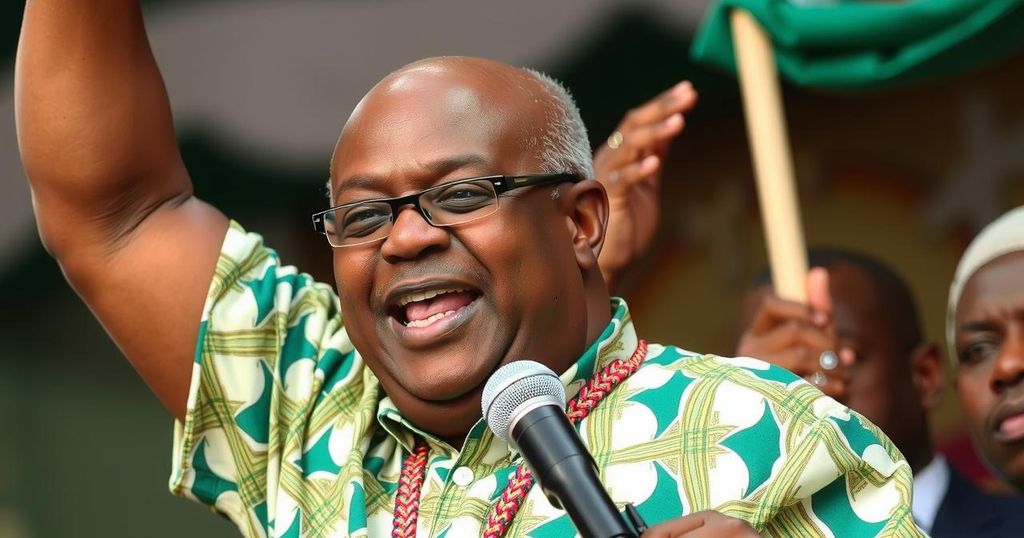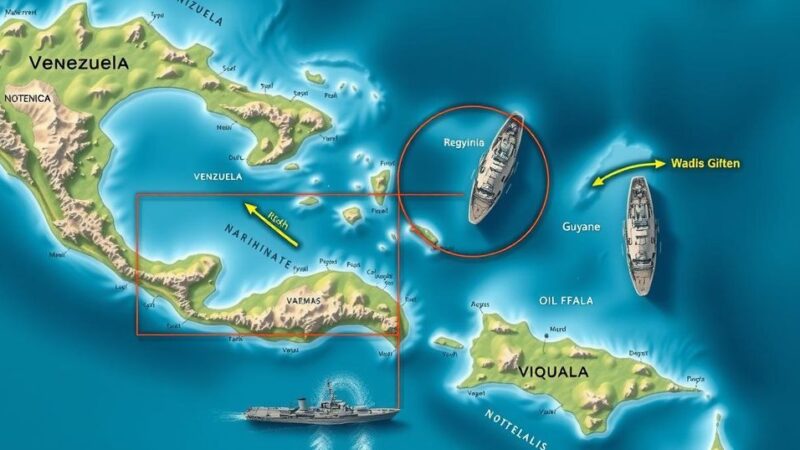Former President John Drahami Mahama won a decisive victory in Ghana’s elections, as the ruling NPP conceded defeat owing to public dissatisfaction with economic management. Mahama’s triumph marks his third attempt at the presidency, with economic challenges dominating the electoral discourse. Both Mahama and the NDC celebrated success in the parliamentary elections, indicating a significant political shift in Ghana.
Former President John Drahami Mahama of Ghana has achieved a historic comeback victory in the recent presidential elections, as the ruling New Patriotic Party (NPP) conceded defeat amidst public dissatisfaction over economic conditions. Vice President Mahamudu Bawumia, the NPP candidate, acknowledged Ghanaians’ desire for change after failing to address high living costs. Mahama, who served as president from 2012 to 2017, secured an impressive win, marking his third attempt at reclaiming the presidency following previous electoral defeats in 2016 and 2020.
The opposition National Democratic Congress (NDC), led by Mahama, also succeeded in the parliamentary elections. Bawumia publicly recognized Mahama’s victory, stating, “The people of Ghana have spoken, the people have voted for change at this time and we respect it with all humility.” Celebrations erupted across the capital, Accra, as supporters rallied outside the NDC’s campaign office, confident in their leader’s return.
Despite Mahama’s confirmed victory on social media, official results from electoral authorities are still pending. The economic issues that plagued Ghana, including inflation and a debt crisis leading to a $3 billion International Monetary Fund (IMF) bailout, were central themes in the elections. Mahama’s 2023 campaign focused on addressing these underlying issues, leveraging discontent with the prior administration’s record that culminated in a series of economic challenges.
Historically, Ghana has exhibited stable democratic practices with alternations of power between the NPP and NDC since 1992. The NPP aimed for a third consecutive term under the banner “Break the 8” but faced critical scrutiny regarding the previous administration’s handling of economic instability. This environment ultimately supported Mahama’s resurgence, who previously had experience in both legislative and executive roles, particularly following the untimely passing of President John Atta Mills, under whom Mahama was Vice President.
Ghana’s political history is marked by a competitive multi-party system that has contributed to its democratic stability since 1992. The country’s two dominant parties, the National Democratic Congress (NDC) and the New Patriotic Party (NPP), have alternated power in a manner reflective of the electorate’s response to economic conditions and governance. Mahama’s previous tenure was characterized by challenges but has now garnered renewed support from voters disillusioned with the NPP’s management of the economy. Economic factors, particularly inflation rates and government debt, were pivotal in shaping voter sentiments leading up to this election.
In conclusion, John Drahami Mahama’s significant electoral victory underscores the Ghanaian populace’s yearning for change amidst economic hardship. This election reflects both discontent with the NPP’s economic policies and a trust in Mahama’s capabilities as a leader. Bawumia’s concession and acknowledgment of the NDC’s win signal a remarkable shift in Ghana’s political landscape as the country looks forward to Mahama’s new leadership and its potential impact on the economy.
Original Source: www.nbcrightnow.com






